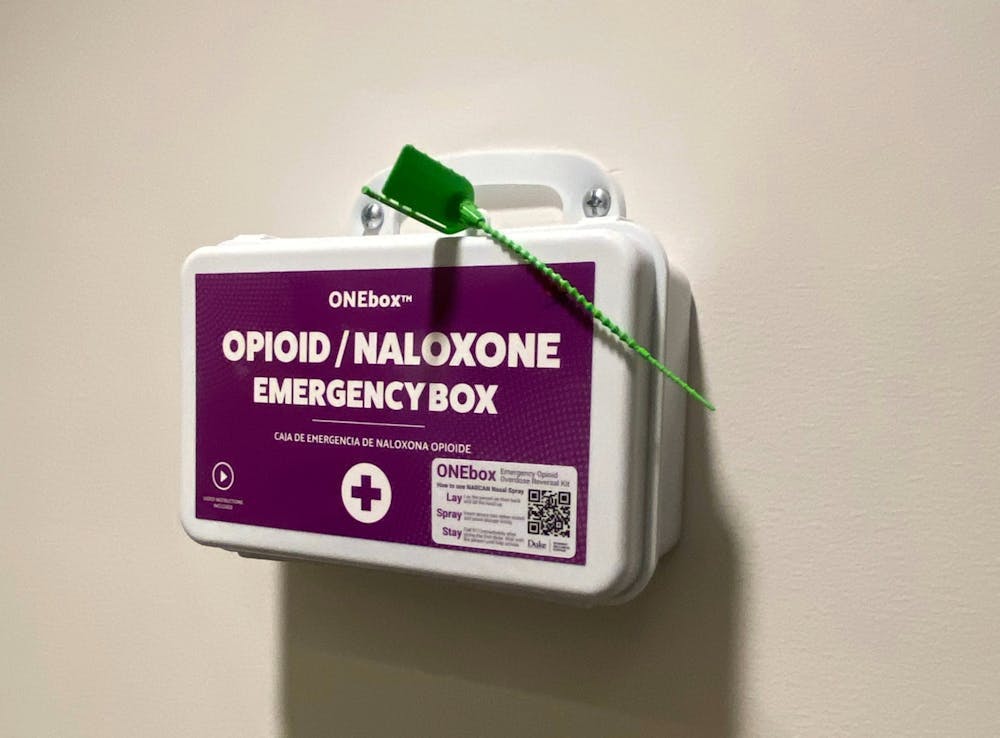Legislation to fund a $5,000 pilot program unanimously passed Elon’s Student Government Association, bringing Narcan to the campus in the fall of 2025.
Generically known as “Naloxone,” Narcan is a medicine that rapidly reverses an opioid overdose. The commonly referred to as “opioid antagonist” quickly restores normal breathing to a person whose breathing has slowed or stopped due to an opioid overdose.
The legislation, which was approved April 4, is still in the approval stage with campus leadership. Chief of Campus Safety and Police Joe LeMire declined to comment until a final approval is set.
The project was presented by senior Emma Bach, who serves as the student government representative on Elon’s Opioid Harm Reduction Committee. The committee allows students and senior staff members to engage in conversations about implementation methods and campus Narcan accessibility.
During her presentation to the senate, Bach outlined the importance of bringing Narcan to Elon, addressing the nationwide opioid crisis.
According to North Carolina Attorney General Josh Stein, more people are dying in North Carolina of an accidental drug overdose than from any other cause of accidental death. Five people die every day in North Carolina from an opioid overdose, and overdose deaths have increased 22% in the state since 2021.
However, a review of EMS data showed that 93.5% of people survived their overdoses when given Naloxone in a timely manner. Narcan availability in residence halls would serve as a important safety precaution just like a defibrillator.
“For the same reason that we have AEDs on campus,” Bach said. “Obviously the hope is that it never needs to be used, but it never hurts to have that safety precaution in place.”
The implemented program makes Narcan accessible in all nine residence hall common rooms through a machine called OneBox, dispensing Narcan, as well as any personal protective equipment, for students. OneBox plays a video upon activation, giving instructions on how to properly administer Narcan and what to do in the situation when someone does overdose.
The kit provides CPR equipment, masks, gloves and anything else the student might need to help in the process. Bach also urges students to always call emergency services.
“Even if students administer Narcan, they still need to be calling 911 in emergency situations,” she said.
The second aspect of the pilot program is an informational session run through student government, providing students proper education on illicit drugs, overdose and the use of Narcan. It gives the students a chance to see exactly where to find these resources both on and off campus.
“Narcan is medication that students should go out and buy,” Bach said. “They can buy it at Walgreens, CVS — any. It's over the counter medication now.”
Bach emphasizes the importance of education on the opioid crisis in the country and what students can do to stay safe.
“This program is to help students understand the illicit drug problem that our country is facing,” Bach said. “It shows what we as students can do to help combat that issue.”


